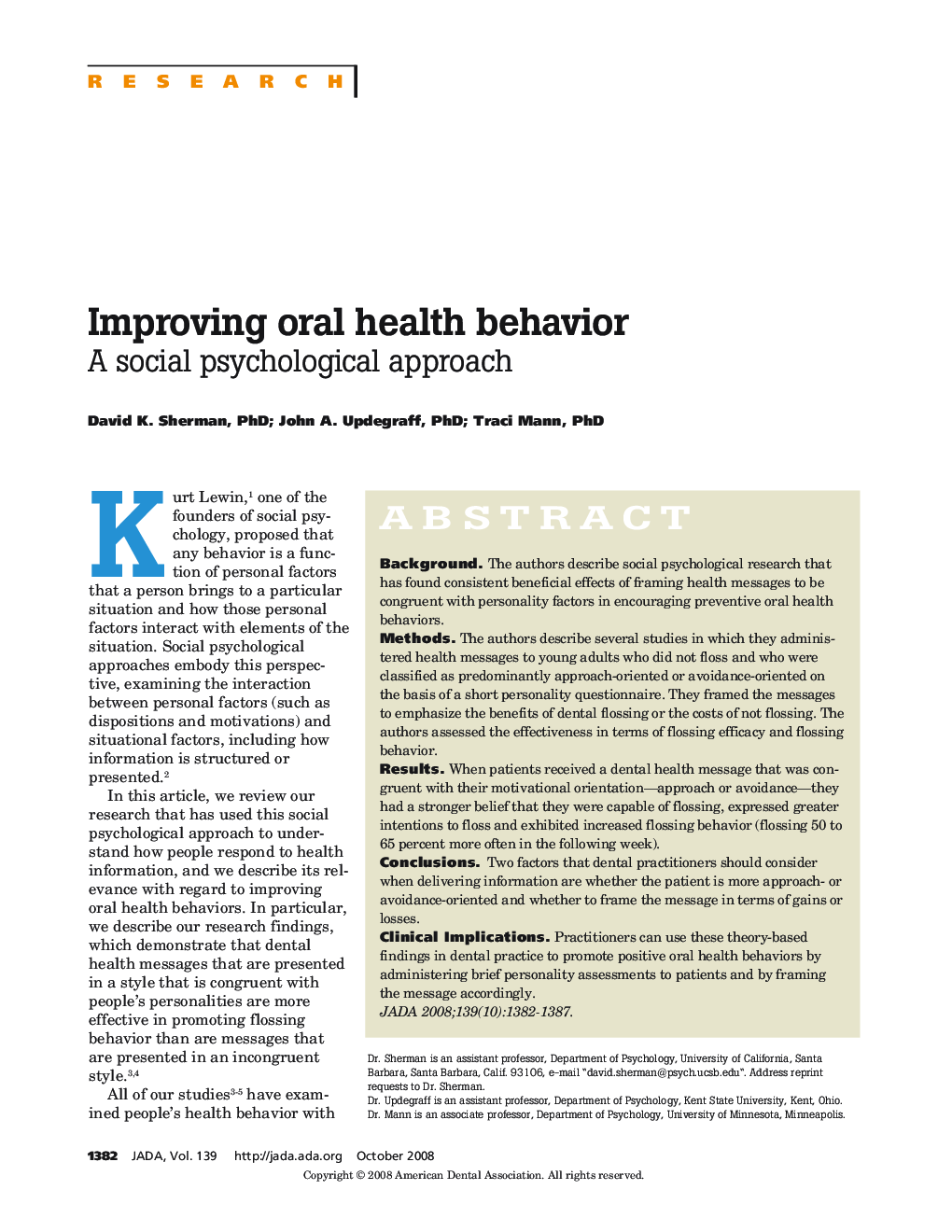| Article ID | Journal | Published Year | Pages | File Type |
|---|---|---|---|---|
| 3139181 | The Journal of the American Dental Association | 2008 | 6 Pages |
ABSTRACTBackgroundThe authors describe social psychological research that has found consistent beneficial effects of framing health messages to be congruent with personality factors in encouraging preventive oral health behaviors.MethodsThe authors describe several studies in which they administered health messages to young adults who did not floss and who were classified as predominantly approach-oriented or avoidance-oriented on the basis of a short personality questionnaire. They framed the messages to emphasize the benefits of dental flossing or the costs of not flossing. The authors assessed the effectiveness in terms of flossing efficacy and flossing behavior.ResultsWhen patients received a dental health message that was congruent with their motivational orientation—approach or avoidance—they had a stronger belief that they were capable of flossing, expressed greater intentions to floss and exhibited increased flossing behavior (flossing 50 to 65 percent more often in the following week).ConclusionsTwo factors that dental practitioners should consider when delivering information are whether the patient is more approach- or avoidance-oriented and whether to frame the message in terms of gains or losses.Clinical ImplicationsPractitioners can use these theory-based findings in dental practice to promote positive oral health behaviors by administering brief personality assessments to patients and by framing the message accordingly.
